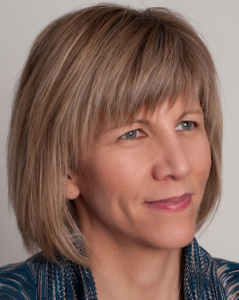Kristin Bodiford, Ph.D. works with systems, communities, organizations, and teams, addressing opportunities for learning, innovation, and transformation. She loves working with Generations United to support intergenerational programs and policies that improve the well-being of children, youth, older adults, families, and communities. Kristin also serves as a representative to the United Nations’ Committee on Non-Governmental Organizations of the Economic and Social Council (ECOSC) for Generations United advising on intergenerational policies and practices.
Kristin serves as faculty at Dominican University School of Social Work. She designed a course for students to collaborate in community action research in Uganda with older people and youth. She also co-teaches a course on community practice with faculty from Nkumba University in Uganda. Kristin served as a principal investigator for a national study Improving the Health of Older Persons in Uganda: Developing intergenerational community-based responses through action research; and was a core project team member for the scaling up of the Social Gerontology Manual in Uganda.
She was previously a Health Advisor with HelpAge USA developing global health strategies and building corporate and foundation partnerships to support the work of HelpAge International. She led teams in data digitization and collection, global analysis and visualization, and human-centered design of program and policy responses working to improve the health of over 50,000 older persons and their families in low- and middle-income countries. She also developed and provided training and technical assistance to an initiative in Kibaha, Tanzania to strengthen intergenerational and family-centered community-based responses to improve health across the life course.
Kristin also has extensive experience working to create more intergenerational, age-friendly and livable communities for all ages including producing Creating Aging-Friendly Communities, an international online conference and community of practice in partnership with UC Berkeley School for Social Welfare.
She has a passion for intergenerational work and has published several resources about how to strengthen intergenerational relationships and collaboration. Her research interests focus on how we can tap into and strengthen relational resources to propel social innovation and co-create generative possibilities in people’s lives and in the world.
Kristin holds a Ph.D. from Tilburg University and an MBA from University of California, Davis. Her research: “Choppin’ it Up: Youth Led Dialogues for Positive Change” focused on the power of engaging voices that may be marginalized in communities through collaborative dialogue that leads to personal and collective social action.
Example Generations United projects include:
- MentorUp brought together young people for mentoring and volunteering that help people 50 and older. Generations United and AARP partnered on this youth-led intergenerational grant program to address the needs of vulnerable adults aged 50 and over. Youth Jumpstart grants aimed at providing youth (ages 13-25) an opportunity to take a leadership role in a project that supported older adults while building strong, healthy intergenerational communities.
- Get Digital: Generations was a project in partnership between Generations United and a major tech company designed to bring youth and older adults together to demonstrate the value technology and social networks can bring to the dynamics of intergenerational relationships and learning about safe online practices for both younger and older generations. This curriculum was also adapted with partners in Kenya to the sub-Saharan context.
- SAGE Intergenerational Hub – This interactive resource was co-designed by SAGE and Generations United with support from the Eisner Foundation to help create ties across generations and build an intergenerational LGBTQIA+ movement.
- Bridging Systems – This project was part of the Grandfamilies & Kinship Support Network to support goals identified by lead agencies in two jurisdictiosn and their partners related to collaboration across government systems and nonprofit service providers, with the ultimate purpose of better serving all kinship families, Workshops were designed to support partners to collaborate effectively to address service barriers and leverage resources to maximize support of these families.
